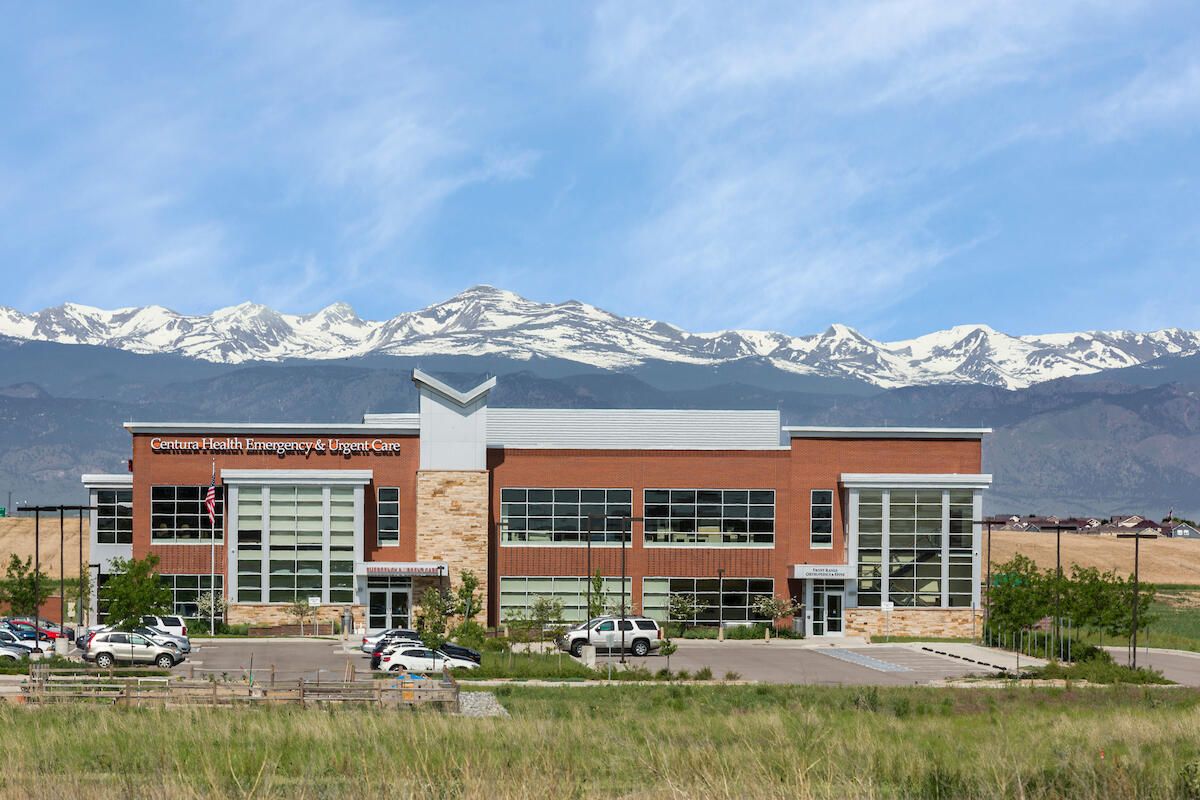BV hospitals embrace new leadership

A population explosion in the Boulder Valley has fueled the growth of hospitals in the area as health systems try to find new ways to reach patients where they reside. Six hospitals in the area have relatively new CEOs who have been on the job for less than four years. Here is a peek at what motivates these energetic new faces in health care.
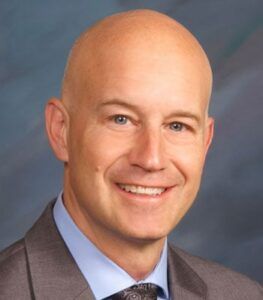
Robert Vissers, president and CEO, Boulder Community Health
One of the longest-serving hospital chief executives in the Boulder Valley, Vissers has been with the hospital since 2014, first as chief operating officer and then as president and CEO after long-time administrator David Gehant announced his retirement in the summer of 2015. Vissers came on board just as Boulder Community was expanding its Foothills campus. Vissers has a background in emergency medicine and was a practicing doctor up until four years ago.
Vissers grew up in Canada and spent much of his career in academics. Before coming to Boulder, he held several leadership roles at Legacy Health in Portland, Ore., and also served as president and CEO of a large independent physician group in the northwest. As a physician, he spent most of his career in Level 1 trauma centers, or safety net hospitals as they are called.
SPONSORED CONTENT
“I think being a physician is a big advantage. It allows me to relate to not just the doctors, but clinicians and those who interact with patients. And, having worked in the settings I have, I think it is easier to understand the patient perspective and the many challenges they face,” he said.
Vissers feels fortunate that he was able to take on a leadership role at BCH a year before he took on the role of CEO. It allowed him to “really understand the culture of the organization and appreciate its values but also learn from Dave prior to his departure. I can’t imagine going into this role from the outside. I know I would have made a lot more mistakes,” he said.
Part of his role as head of BCH is to help create change and manage the organization through any challenges that arise but “at least part of my job is to not diminish or lose sight of things the organization has that are great.”
He came into the job with a talented and seasoned team already in place so the biggest challenge has been defining the hospital’s vision and moving forward with the goals and interests of the board and community.
Boulder Community Health remains an independent, nonprofit community health system.
“We think that maintaining our independence will allow us to make important choices for our community,” Vissers said.
That includes partnering with others in the community who have similar goals like providing shelter for the homeless or caring for those who have experienced sexual assault or abuse.
“Engaging with community partners has been something we will continue to grow to help us achieve that,” he said.
Mental health is one of the areas the hospital is focusing on moving forward. In January, the hospital will open a state-of-the-art 18-bed mental health unit.
“I think the next phase is making sure we continue integrating a more holistic approach to health care, integrating mental health with the health care we already provide,” he said.
BCH is moving out of its Broadway campus and consolidating those operations at the Foothills campus. It recently opened a new emergency department at Community Medical Center in Lafayette, broke ground on a second Urgent Care Center in Superior and has plans for a third location in Erie in 2019.
Vissers said to expect more collaborations between BCH and other health organizations in the area. The hospital is partnering with UCHealth to open a rehab center at UCHealth Broomfield Hospital.
“By doing it together, we gain efficiencies and higher quality. Most of the conversations I have with other systems are collaborative and around partnership,” he said.

Tina Johnson, CEO, Longmont United Hospital
Tina Johnson was a long-time practicing physician before becoming a hospital administrator. She trained in internal medicine but after doing a residency in San Francisco, she realized she enjoyed practicing in the emergency department because of the fast pace and variety of cases.
Johnson and her husband moved to Denver 24 years ago and fell in love with Colorado.
She did her second residency at Denver General Hospital, which is now Denver Health. After her residency, she stayed on as an attending physician until moving to Lutheran Medical Center where she was an ER physician.
“Along the way I realized that to advocate for my patients I needed to work outside the ER as much as inside the ER. There were some things I couldn’t solve through training,” Johnson said, like transitional care or helping patients get the correct medicines or helping geriatric patients remain at home while still getting the care they need.
She started working with agencies outside the ER to try and solve some of those problems, acting as medical director of the ER. She advanced through various leadership roles at Lutheran before coming to Longmont United Hospital as its CEO in May.
The hospital is about to celebrate its 60th year in the community. Johnson said the hospital was attractive to her because of its patient-centric approach to health care, its architectural design and processes. “It was a very appealing environment,” she said.
In her five months on the job, she has worked toward prioritizing various aspects of the job, including growth of some service lines and leveraging the hospital’s connection to Centura Health.
One of the biggest opportunities she sees is to educate the community about why they should choose Longmont United Hospital over other health care facilities in the area.
“We want to be as full service as reasonably possible in terms of physician coverage to keep patients here in the community. Longmont is a place of a lot of pride,” she said. “Not only is it a beautiful place but it feels like a big small town. People know each other.”
LUH just achieved a designation as a primary stroke center and received national accreditation as a primary breast care facility offering screening mammograms, diagnosis, surgery and oncology services right on campus.
“Many community hospitals can’t claim that level of continuum of care service. Those are the sorts of things where there are opportunities. We are looking to fill those gaps so we can continue to be that for our community,” Johnson said.
The hospital just replaced its MRI scanner and its CAT scanner. It has made a huge push to improve its technical infrastructure so that patients don’t have to leave the community to get top-of-the-line care.
“In this rapidly changing health-care dynamic, we need to continue to focus on what is the unique value proposition of the hospital,” Johnson said. “So many things can be done outpatient or more patient friendly. It is much better if they can have a procedure and then go home and sleep in their own bed.”
Technological advances have made that possible, and Johnson feels it is her job to continue to design the hospital’s role and give support where it doesn’t have a primary role.
That’s where a community health needs assessment can help identify the challenges and help determine how a hospital can help and when it is best for a patient to receive care elsewhere, she said.
Longmont United has heightened its focus on behavioral care, creating relationships within the community to make sure patients are getting the care they need so they don’t fall through the cracks. That could be something as small as offering free LYFT rides to doctor’s appointments to making sure patients are filling their prescriptions.
“It is really understanding that many of these issues are diseases, the conditions are chronic and no different from diabetes or heart failure,” Johnson said.
“Fortunately, this community seems particularly forward thinking in terms of being supportive,” she said, including police, fire and emergency medical services. And even though some agencies don’t have direct care over behavioral patients, the community is trying to get beyond the stigma of behavioral health issues to lean in and address the problems in any way they can, she said.
“You can take a village of well-meaning, hard-working, volunteering compassionate people but you still need resources to provide services. That is not unique to health care,” Johnson said.
Hospitals will end up spending the money through less optimal means, like emergency room care, so why not instead spend the money on better access for outpatient care so that these individuals who need help get it before they land in dire straits, she said.
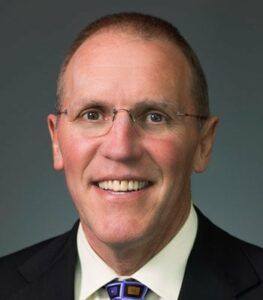
Dan Robinson, CEO, UCHealth Longs Peak Hospital
Dan Robinson has been in health care for 35 years. He was hired on as CEO of UCHealth Longs Peak Hospital in Longmont in 2015 and is set to retire in 2019. The facility opened its doors in 2017.
“I am very fortunate to build a hospital from the ground up. Not a lot of health-care administrators get the same experience I had over the last three years,” said Robinson, the former CEO of Colorado Health Medical Group.
He led Colorado Health Medical Group when it acquired the Longmont Clinic.
“We knew at the rate we were growing we would need to build a hospital,” Robinson said. “I was asked to be CEO of the hospital knowing we had great physicians in the marketplace and a history of delivering extraordinary care.”
Robinson said that the hospital isn’t where he wants it to be yet.
“We will rely on the community to tell us what they need, improving our current services, choice of service or the specific services our community needs,” he said. “We will continue to grow and evolve as the community needs us to grow and evolve.”
UCHealth is looking into the possibility of opening an ambulatory care facility on the Longs Peak Hospital campus that would be designed to bring in more providers who want to practice closer to Longs Peak Hospital and to provide more room for people to join the organization and practice closer to Longs Peak Hospital, Robinson said.
“We have a lot of specialists who drive back and forth from a clinic to the hospital every day who need to be closer to the hospital so they can deliver care in a more timely fashion and don’t have to drive,” he said.
Longs Peak is a Level 3 trauma center. If more extensive care is needed, a patient is transferred to Medical Center of the Rockies in Loveland or the University of Colorado Hospital in Aurora.
Longs Peak provides basic community services. It has 51 licensed beds plus a six-bed Level 2 nursery for newborns who were born at 34 weeks or later.
“Our volume continues to increase. The community is much more aware of us,” Robinson said.
As an administrator, Robinson said he believes in “enabling those who have expertise, the commitment and compassion to deliver what we would want for our own family members and put them in a position where they make the right decisions in real time for our patients.”
Longs Peak Hospital also has a strong and collaborative relationship with the University of Colorado School of Medicine.
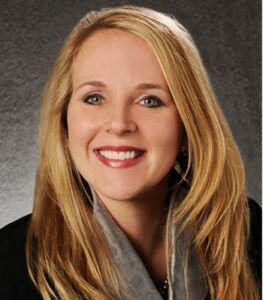
Jennifer Alderfer, president, Good Samaritan Medical Center
Jennifer Alderfer has been with Good Samaritan Medical Center in Lafayette for a little over a year.
Before joining the SCL Health System she served as president and CEO of North Suburban Medical Center in Thornton.
Alderfer spent the majority of her career as a hospital administrator, but she did spend time as a certified nurse aide at a nursing home and in a hospital setting. These experiences showed her she was most interested in working in a hospital setting.
“I am better suited to administration rather than the direct care giver side of health,” Alderfer said.
Even though Good Samaritan is a large and busy medical center with a Level 2 trauma designation, Alderfer said that the hospital staff does its best in an environment that is very family- and community-oriented.
Good Samaritan turns 14 years old on Dec. 1, which is a good opportunity for the hospital to look at the next five to 10 years to see what it will do to “continue to meet the growing needs of this growing north metro community and that’s the challenge and that’s the fun part of it,” she said.
Alderfer considers her leadership style as very collaborative. Health care is a very team-oriented industry with physicians, nurses, therapists and other health-care professionals teaming up to serve individual patients.
“It is not all that different when you work on the administrative side of health care. It is very much a team approach to improving the health of the community and the efficiency of care operations,” she said.
“We are very fortunate to be part of the SCL Health family. Through that we have technology we are also deploying to our patients. We have Doctor on Demand, where the patient can access us through technology, connecting with a physician partner before making the decision to come into the hospital,” she said. “We know some things can be dealt with outside of a hospital setting.”
Health care is always evolving, she said, and the health care that has been delivered the past 10 or 20 years will not necessarily transfer to the next 10 to 20 years, she said. That’s why she and other health care leaders are forming partnerships with other entities serving community members to continue delivering the best care into the future.
Click to read an exclusive Bizwest One-on-One interview with Jennifer Alderfer.

Jillyan McKinney, president and CEO, Avista Adventist Hospital
Jillyan McKinney moved to Colorado in November 2017 to take over as president and CEO of Avista Adventist Hospital in Louisville. She is not a physician by training, but she said she grew up with a family of care givers.
“Many people thought I was going to be a physician but my best skillsets weren’t in that space. I loved economics and helping people and leading and working with teams,” McKinney said.
She has worked for the Adventist Health System for 15 years because through it she is able to “live my values and faith as part of the work I do every day.”
One of the things that first drew McKinney to Colorado was Avista’s legacy in health care. The hospital has been in Louisville since 1990 but was actually founded in 1896 as the Colorado Sanitarium.
“It is cool to be part of something that had such a history and that aligns with my philosophy in whole-person care,” she said.
Avista is in the process of finding itself. It has always done a great job delivering babies, she said. More than 50,000 babies have been delivered there since 1990. But beyond babies, Avista wants the community to know that it is there to support its neighbors on their wellness journeys.
It offers extensive orthopedic services for joints and spines and urology services. It is in the process of developing a comprehensive heart and vascular program and is looking to become a destination center for breast health, providing a full range of cancer prevention, screening, diagnostic and treatment options.
The hospital recently invested in a second 3D mammography machine, which detects cancer much sooner than a traditional mammogram.
Avista is also working on a pelvic floor health program for women.
“One in three women has a pelvic floor issue but half of those don’t say anything about it,” said McKinney. She would like to improve awareness of this problem from a community perspective. The hospital delivers outpatient care at its Church Ranch location. Most of the treatment can be done with therapies, which is “life changing,” she said.
“It is such an under-recognized issue. We women like to grin and bear it and we don’t have to,” she said.
McKinney pointed out that women are usually the decision makers about health care but they don’t take care of themselves. “Engaging women is important from a business perspective,” she said. “It becomes more personal as a female leader. When you live it yourself there is a little more fervor behind that. There is a gap in focusing in that space.”
Avista recently purchased a new MRI, which sends patients in feet first instead of head first. McKinney hopes that patients will have less anxiety around the procedure because of it. The hospital also is upgrading its orthopedic surgical robot to the da Vinci Xi Surgical System.
“We’re the first hospital in the Boulder Valley to have that technology. It offers a quicker recovery time and less complications so people are able to get back to their family and their life. That’s why we are in this,” she said.
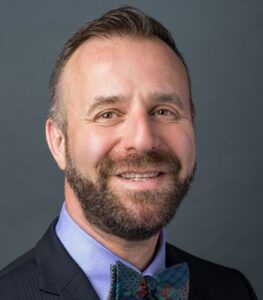
Derek Rushing, president, UCHealth Broomfield
Derek Rushing was a management consultant who worked in many different industries before landing in health care.
“That’s where I feel I connected on a professional and personal level. When that consulting work ended, I was offered to take a job to stay in that health system,” he said.
From there he grew into many roles, eventually going back to school to earn his MBA in health-care administration. He transitioned to UCHealth 11 years ago and was the first employee hired at UCHealth Broomfield.
“I started here while the hospital was still under construction working in an offsite location to start building those teams and processes while preparing for the opening,” Rushing said.
UCHealth decided to build a hospital along the U.S. Highway 36 corridor between Denver and Boulder because of the explosive growth in the area over the past 20 years. The full-service hospital offers comprehensive ER services, in-patient services, experienced nurses, physical and occupational therapies, specialty surgical services, urology, orthopedics, ENT and facial trauma. It also has comprehensive lab services and in-patient and out-patient imaging.
UCHealth Broomfield differentiates itself from the competition because of its deep connections to the UCHealth system.
“From a cultural perspective that I work on driving at a community hospital like this is to knock it out of the park from a service perspective with patients, employees and visitors who come here. We create a family environment in a facility like this where I literally know every person who works in the facility and because of its size, you don’t find you have employees that say, ‘that’s not my job’ or ‘that will take me from my department too long,’” he said. “Everyone is willing to help out and be part of the end solution for a patient at the end of the day, which is our primary focus.”
One of the hospital’s future expansions will be a patient rehabilitation unit it is building in collaboration with Boulder Community Health. The unit will open in summer 2019. It will serve patients who still need medical attention but are not ready to go home yet or be moved to a lower level of rehab: patients who are recovering from spine surgeries, strokes or other orthopedic surgeries that need some intensive physical, occupational or speech therapies so they can then transition back into their home or to a lower level of care to continue their recovery, Rushing said.
UCHealth Broomfield opened in June 2016.
“We want to continue to grow and expand our services. You will see that from the surgical side, ENT and orthopedics, bringing on additional providers to expand the care we can provide here,” he said.
Over the past year, the hospital opened a new primary care office and will open a medical center in Broomfield to house some of its orthopedic surgeons.
“I do like my job. The consulting work, while I had a lot of great experiences with a lot of industries, health care is the one I really connected with. While I’m not a clinician, making a difference and improving people’s lives is important to me,” Rushing said. “I like the complexity and challenges that come with working in the health-care industry and running a hospital. I love being able to work with smart and caring people, which I’m surrounded by every day.”
A population explosion in the Boulder Valley has fueled the growth of hospitals in the area as health systems try to find new ways to reach patients where they reside. Six hospitals in the area have relatively new CEOs who have been on the job for less than four years. Here is a peek at what motivates these energetic new faces in health care.

Robert Vissers, president and CEO, Boulder Community Health
One of the longest-serving hospital chief executives in the Boulder Valley, Vissers has…
THIS ARTICLE IS FOR SUBSCRIBERS ONLY
Continue reading for less than $3 per week!
Get a month of award-winning local business news, trends and insights
Access award-winning content today!


